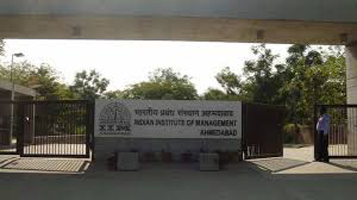NE NEWS SERVICE
AHMEDABAD, JUNE 2
Amid the COVID-19 pandemic, civil society organisations (CSOs) have not been able to partner with government productively to help people overcome the difficult times, as per a survey conducted by the Indian Institute of Management, Ahmedabad.
Experts say this is “disturbing” as usual in times of crisis, there is a convergence of forces to put things together.
“Almost half the CSO leaders (surveyed) did not find relevant government functionaries they need to work with on the ground, to be accessible. More than two-thirds felt those making policies were not very receptive to their inputs,” as per the survey, titled, ”Civil Society leaders perceptions and experience during COVID-19”.
“Accessibility to government officials was even lower for those working in only rural areas and for smaller organisations, said the survey, conducted on 65 NGOs and CSOs between May 3 and 10 by an IIMA team led by Prof Ankur Sarin.
The survey report said, “CSOs have not been able to partner with the government productively”.
“Responses of only around 10 percent of organisations indicate they are involved in efforts directly with the government, and more than 40 percent said coordinating with the government for their work was one of the biggest challenges they were facing, the survey said.
Mobilising financial resources was found to be one the biggest challenges that almost 60 percent of organisations reported being facing, it said.
“A significant share of these finances required might be for independent relief efforts (without any help from government) that half the organisations reported as taking up most of their time, it said.
Civil Society leaders worry about donors (including government) deprioritising other ongoing long-term efforts, such as malnutrition, education, domestic violence, child abuse, and women’s rights issues, it said.
This, many felt, would undermine years of collective efforts and progress, it said, adding over a quarter reported that re-planning their activities, and coordination and communication with funders was taking up most of their time.
Some experts who studied the survey said it was a matter of concern that instead of convergence of forces, CSOs were not being utilised to fight the pandemic.
“This is a bit of a disturbing report. Usually in times of crisis, we see the convergence of forces to put things together and also a great sense of partnership and consultation,” said IIM Bangalore Prof M S Sriram, who is considered an expert on CSOs.
“This report indicates a significant breakdown into three silos donor agencies and their shifting priorities (possibly under pressure to contribute to PM CARES than anything else), the government and its machinery and standalone CSOs, he said.
Prof Madhukar Shukla from the XLRI-Xavier School of Management, Jamsehdpur, said, It is important to recognise that what we are facing is an unprecedented situation with no earlier benchmarks to rely on.”
Unlike other disasters that were largely localised and didn’t impact the other support systems (government, economy funding organisations, demographic), this pandemic has impacted all systems, not only in India but all over the world, he said.










